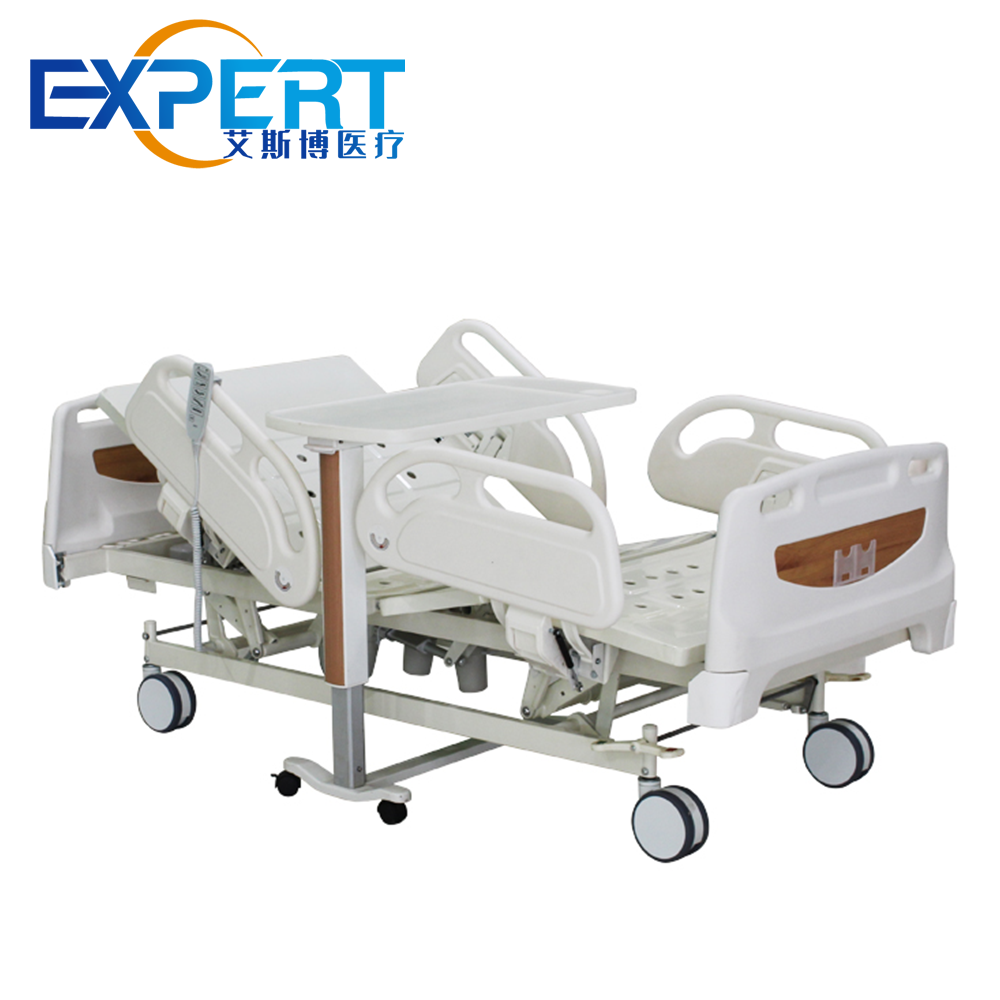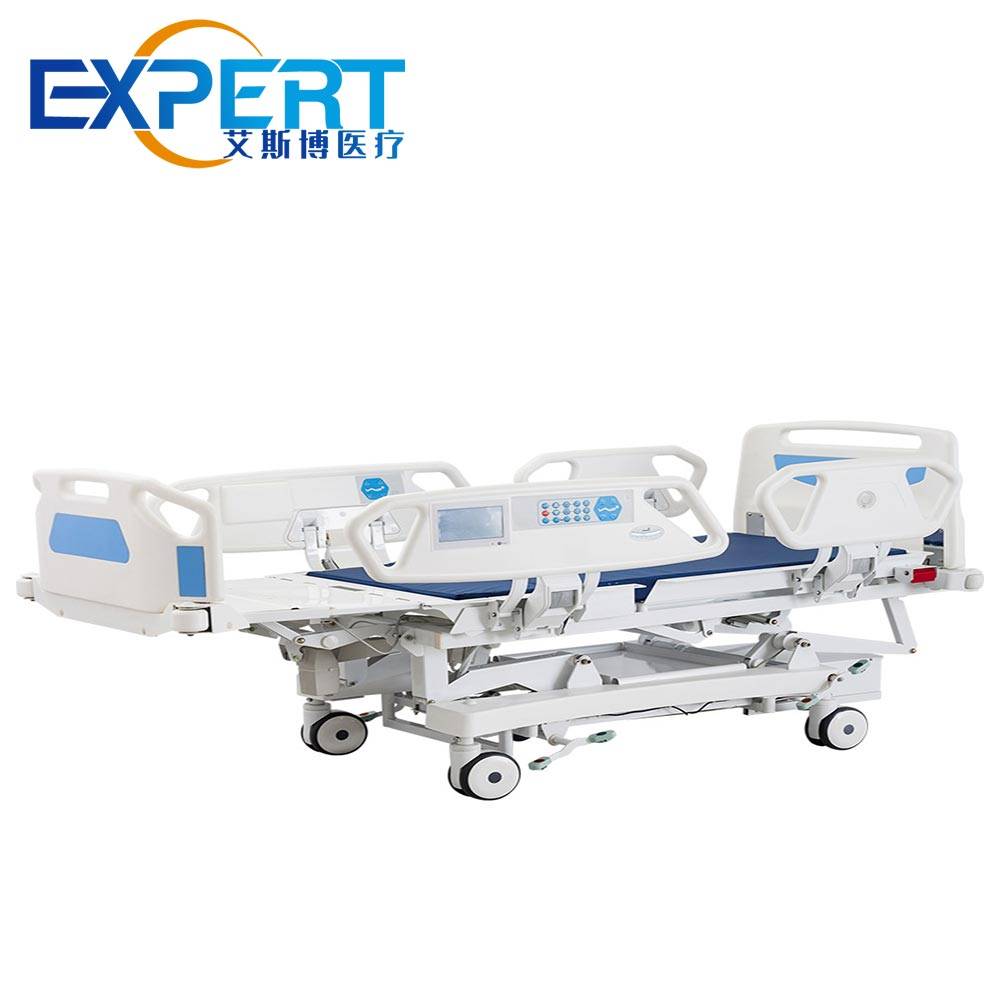Address
304 North Cardinal St.
Dorchester Center, MA 02124
Work Hours
Monday to Friday: 7AM - 7PM
Weekend: 10AM - 5PM
Welcome to My Blog!
Before we dive into the content, I’d love for you to join me on my social media platforms where I share more insights, engage with the community, and post updates. Here’s how you can connect with me:
Facebook:https://www.facebook.com/profile.php?id=100071234835011
LinkedIn:https://www.linkedin.com/company/74943205/admin/dashboard/
YouTube:www.youtube.com/@shandongexpertmedicalequip4695
TikTok:www.tiktok.com/@expertmedical
Now, let’s get started on our journey together. I hope you find the content here insightful, engaging, and valuable.
When it comes to ensuring that a hospital or healthcare facility runs smoothly, selecting the right hospital bed supplier is crucial. Hospital beds are essential for patient care, and choosing a supplier that offers quality products, excellent customer service, and reliable after-sales support can significantly impact the well-being of patients and the efficiency of healthcare workers. This guide will walk you through the key considerations in choosing a hospital bed supplier, key features to look for, and how to assess your options.

Hospital beds are specialized pieces of medical equipment designed to provide comfort, support, and safety for patients in hospitals, nursing homes, or at home. These beds come in various styles, functions, and features, tailored to the specific needs of different patients and healthcare environments. However, with so many suppliers and manufacturers available in the market, it can be overwhelming to make the right decision. Selecting the right hospital bed supplier involves not only considering product quality but also evaluating customer service, delivery timelines, and warranty offerings.
In this article, we’ll guide you through the process of choosing the right hospital bed supplier, explain important features to consider, and answer frequently asked questions to help you make an informed choice.
Selecting the right hospital bed supplier ensures that you receive the best possible products to meet your facility’s needs. Hospital beds are crucial for patient care and must be reliable, comfortable, and adjustable to provide optimal support. A high-quality bed supplier also offers additional services such as custom bed options, installation, maintenance, and warranty packages.
When evaluating hospital bed suppliers, several key factors should influence your decision-making process. These factors will ensure that you invest in a product that meets both patient and facility requirements while also fitting within your budget and long-term goals.









Different hospital beds come with a variety of features designed to enhance patient care and staff convenience. When selecting a bed supplier, ensure that the beds they offer have the following features:
Adjustable height settings and positioning allow healthcare professionals to easily adjust the bed to suit different patient needs. Height adjustments can help caregivers perform tasks more efficiently, while head and foot adjustments provide added comfort to patients. Beds with motorized controls or manual adjustments offer flexibility in care.
Hospital beds should have surfaces that are easy to clean and sanitize, helping to reduce the risk of infection. Look for beds with smooth, non-porous surfaces, and materials resistant to wear and tear. Waterproof or antimicrobial mattress covers also help maintain cleanliness.
Safety is a priority for patient care, and side rails are an essential feature to prevent falls. Adjustable side rails that can be raised and lowered based on the patient’s mobility and medical condition help ensure the safety and comfort of patients during rest or treatment.
Some patients require beds that can be easily moved or adjusted to accommodate their medical needs. Beds with wheels or casters allow for easy mobility and flexibility in a hospital or care setting. Some suppliers also offer transportable beds for patients who need to be moved between different areas of a hospital.

Selecting the right supplier involves evaluating multiple factors, including product quality, service, pricing, and reputation. To make an informed decision, use the following steps when assessing hospital bed suppliers:
| Supplier | Product Range | Warranty | Customer Support | Delivery Time | Pricing |
|---|---|---|---|---|---|
| Expert Medical | Manual & Electric Beds, ICU Beds, Bariatric Beds, Pediatric Beds, Long-Term Care Beds | 5 years | 24/7 customer support, Installation assistance | 2-4 weeks | Competitive, Flexible Payment Options |
| Drive DeVilbiss Healthcare | Manual & Electric Beds, Bariatric Beds, Adjustable Beds for Home Care | 3 years | Standard business hours support, Online resources | 1-3 weeks | Mid-range pricing, Affordable |
| Hill-Rom | Electric Hospital Beds, ICU Beds, Specialty Beds, Rehabilitation Beds | 3-5 years | 24/7 support, Online assistance | 2-6 weeks | Premium pricing, High-end products |
| Invacare | Manual & Electric Beds, Bariatric Beds, Adjustable Beds, Homecare Beds | 3 years | Excellent after-sales support, Installation help | 2-5 weeks | Affordable pricing, Discount offers |
| Stryker | ICU Beds, Electric Adjustable Beds, Pressure-Relief Beds, Operating Room Beds | 4 years | 24/7 customer service, Parts availability | 3-5 weeks | Premium pricing, High-performance beds |
| Medline | Manual & Electric Beds, Geriatric Beds, Pediatric Beds, Hospital Bed Accessories | 3 years | Standard support, Limited weekend hours | 1-3 weeks | Affordable, Frequent discounts |
Choosing the right hospital bed supplier is a critical decision that directly affects patient care and comfort. By considering factors such as bed quality, product variety, customer service, and pricing, you can ensure that your healthcare facility has the best equipment to meet your needs. Expert Medical is a leading hospital bed supplier, offering a wide range of quality products, excellent customer service, and reliable warranties.
Take the time to research different suppliers, compare their products and services, and choose one that aligns with your facility’s goals and budget. With the right hospital bed supplier, you can ensure that your patients receive the best care possible.
Q1: What is the difference between manual and electric hospital beds?
A1: Manual hospital beds require caregivers to adjust the height and positioning manually, whereas electric beds use motors to automatically adjust these settings. Electric beds provide more convenience and flexibility for both patients and caregivers.
Q2: How often should hospital beds be replaced?
A2: Hospital beds should be replaced when they show signs of wear and tear, such as broken components, safety issues, or difficulty in adjustment. Typically, beds should be replaced every 7-10 years, depending on usage and maintenance.
Q3: What are the advantages of bariatric hospital beds?
A3: Bariatric hospital beds are designed to accommodate patients with higher weight capacity, providing extra durability and support. They are equipped with reinforced frames, wider surfaces, and safety features to ensure patient comfort and safety.
Q4: Can hospital beds be customized?
A4: Yes, many hospital bed suppliers offer customization options to meet specific patient needs, such as specialized mattresses, side rails, and adjustable features.
Q5: What factors should I consider when choosing a hospital bed supplier?
A5: Factors to consider include product quality, variety of options, customer support, warranty coverage, pricing, and supplier reputation.
